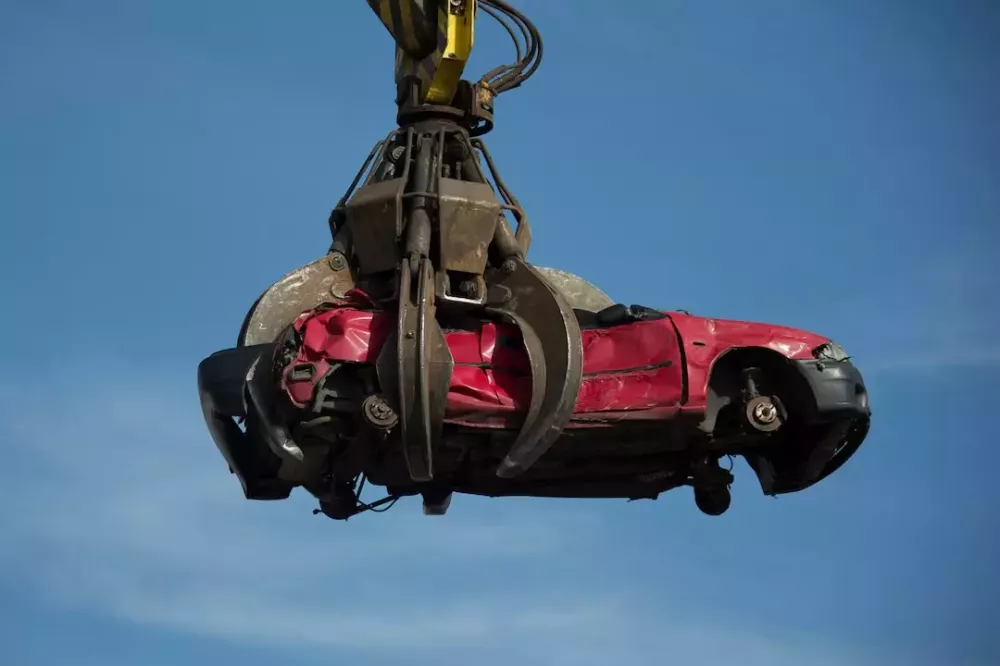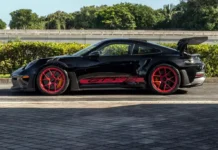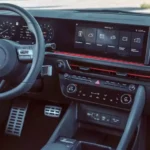In just three days, April 2025 has turned into a very dark period for many automakers. Apart from facing the “brutal” tariffs imposed by US President Donald Trump, which are expected to come into force on April 2, 2025, many automakers have also been hit with heavy fines from the European Union (EU)
.
Specifically, the EU has fined 15 car manufacturers and the European Automobile Manufacturers Association (ACEA) a total of €458 million (approximately $494.1 million) for colluding to violate end-of-life vehicle recycling laws. This involves dismantling, treating, and disposing of vehicles when they reach the end of their usable lives.
According to the European Commission, 16 carmakers, along with ACEA, engaged in anti-competitive agreements and practices related to the recycling of old vehicles. In particular, the group agreed not to pay recycling facilities, arguing that this was an already profitable business.
Moreover, these automakers shared commercially sensitive information about their agreements with recycling facilities and colluded with them. The manufacturers also withheld information about vehicle recyclability, preventing customers from considering this factor when purchasing automobiles.
This violated EU Directive 2000/53/EC, which stipulates that the final owners of end-of-life vehicles have the right to dismantle their cars free of charge at an authorized treatment facility. If necessary, car producers must bear the costs. The directive also requires consumers to be informed about the recyclability of new vehicles.
This scandal lasted for over 15 years, from May 2002 to September 2017, and involved BMW, Ford, Honda, Hyundai/Kia, Jaguar Land Rover, Mazda, Mercedes-Benz, Mitsubishi, Opel, Renault/Nissan, Stellantis, Suzuki, Toyota, Volkswagen, and Volvo. Tata, General Motors, and Geely were also implicated as parent companies.
ACEA is believed to have played a coordinating role by arranging meetings and facilitating communication among the carmakers participating in this agreement.
Although it was involved in the agreement, Mercedes-Benz chose to denounce its accomplices, resulting in a full exemption from the fine. This decision helped them avoid a penalty of €35 million (approximately $37.8 million)
.

Violating end-of-life vehicle recycling laws, 15 automakers were fined $494 million, while Mercedes escaped punishment by speaking out.
Several other manufacturers received reduced penalties due to their lower level of involvement, including Honda, Mazda, Mitsubishi, and Suzuki. Renault had previously requested an exemption from advertising the use of recycled materials in new vehicles. Stellantis (including Opel), Mitsubishi, and Ford also cooperated with the investigation, leading to mitigated fines.
Volkswagen was hit with the highest penalty, amounting to €127.7 million ($137.7 million). The next heaviest fines were imposed on Renault/Nissan (€81.5 million or $87.9 million) and Stellantis (€74.9 million, equivalent to $80.8 million). ACEA was fined €500,000.
All the carmakers acknowledged their wrongdoing and received a 10% reduction in their fines. In a statement, the Stellantis group acknowledged the decision of the EU competition authority and confirmed their cooperation during the investigation. The company also mentioned that the fine had been anticipated and was reflected in their 2024 financial report.
“Today, we have taken strong action against companies colluding to prevent competition in the area of recycling. These car manufacturers coordinated for more than 15 years to avoid paying for recycling services by agreeing not to compete with each other in advertising the recyclability of their cars and by keeping silent on the use of recycled materials in new vehicles,” said Executive Vice President of the European Commission, Margrethe Vestager.
“We will not tolerate car manufacturers, or any other companies, colluding to keep consumers in the dark and prevent them from making environmentally friendly choices,” Vestager added.












































